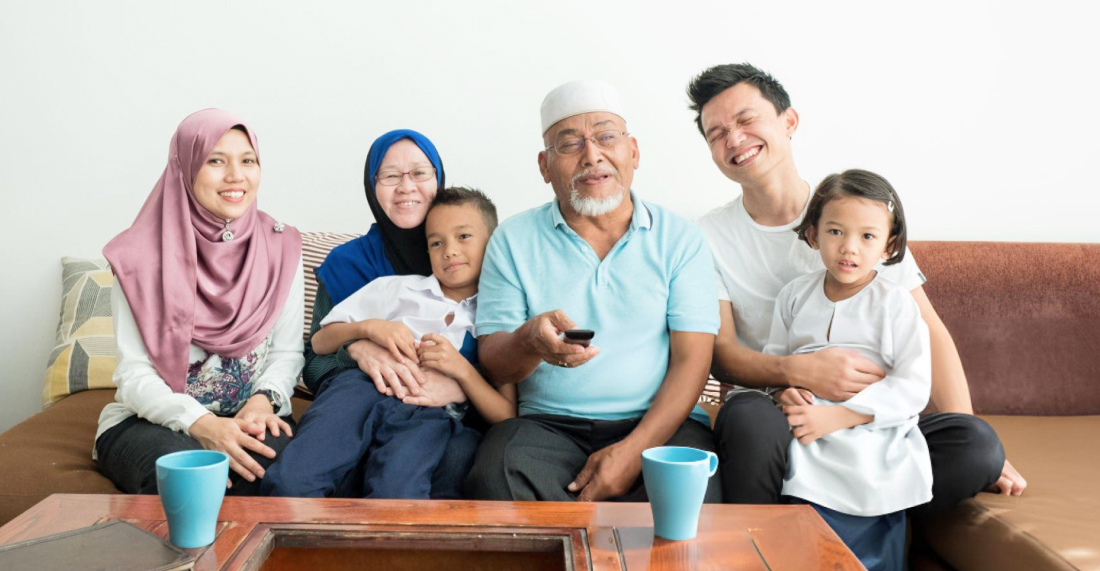

As individuals gracefully navigate the later stages of life, a period often characterised by significant transitions such as retirement, changes in health, and shifts in living arrangements, the significance of maintaining robust connections often becomes profoundly apparent. Beyond the foundational pillars of physical health and financial security, the importance of family and social relationships in senior well-being is increasingly recognised as an absolutely cornerstone of a fulfilling, vibrant, and healthy older age. These invaluable connections provide far more than mere companionship; they offer a vital, multifaceted support system, fostering a deep sense of belonging, purpose, and continuity that is truly indispensable for overall quality of life.
This article will delve into the myriad ways in which these bonds contribute to the holistic well-being of older adults, exploring their impact on physical and mental health, happiness, and resilience.
For seniors, social relationships encompass a broad spectrum of interactions, ranging from immediate family members to lifelong friends, neighbours, and community groups. These bonds are not merely pleasantries; they form the very fabric of an individual’s support network, offering emotional, practical, and informational assistance. The nature and frequency of these interactions can vary greatly, but their consistent presence is key to fostering a positive environment. Active engagement, whether through regular family visits, phone calls with friends, participation in clubs, or volunteering, contributes significantly to a senior’s sense of connection and purpose. This continuous engagement helps to combat feelings of isolation and loneliness, which can otherwise have detrimental effects on health.
Extensive research consistently highlights the profound impact of robust social relationships on well-being in later life. It’s not just about adding years to life but adding life to years. Studies have unequivocally shown that seniors with strong social ties tend to live longer, healthier, and more fulfilling lives. This isn’t merely anecdotal; the benefits are thoroughly quantifiable and medically significant. Socially connected individuals frequently exhibit remarkably lower rates of chronic diseases, including major cardiovascular conditions like heart disease and stroke, as well as certain types of cancer. Furthermore, the physiological advantages extend to a more robust immune system, rendering them significantly more resilient to infections and quicker to recover from illnesses. This translates to fewer doctor visits, less reliance on medication, and an overall higher quality of physical health throughout their later years.
Beyond the undeniable physical advantages, the cognitive benefits of social engagement are equally significant. Regular social interaction acts as a powerful stimulant for the brain, akin to exercise for the body. Engaging in lively conversations, actively participating in group activities like book clubs or community projects, and even simply planning social outings all contribute substantially to maintaining cognitive function and reducing the risk of cognitive decline. This proactive mental stimulation can even help mitigate the onset and progression of conditions like dementia. The intricate dance of recalling shared memories, processing new information during discussions, and strategising for group events keeps neural pathways active and healthy.
Moreover, the emotional support derived from these close relationships plays a critical role in managing stress, which is a well-established contributor to a myriad of physical ailments, from high blood pressure to compromised immunity. In essence, nurturing these vital social connections isn’t just a pleasant pastime; it acts as a powerful preventative medicine, enhancing both physical vitality and mental sharpness, paving the way for a truly thriving elderhood.
The link between social relationships and happiness is particularly strong in older adults. A sense of belonging and being valued are fundamental human needs that do not diminish with age. When seniors feel connected, they report higher levels of life satisfaction, joy, and overall emotional well-being. These relationships provide opportunities for shared experiences, laughter, and mutual support, which are powerful antidotes to feelings of sadness or depression.
Family gatherings, for instance, offer a unique blend of nostalgia, continuity, and intergenerational connection, enriching the lives of both seniors and younger relatives. Friends provide companionship, understanding, and a shared history, offering a crucial outlet for socialisation and emotional expression. Community involvement, whether through hobby groups, religious organisations, or volunteer work, provides new avenues for purpose and contribution, reinforcing a senior’s sense of identity and relevance. These interactions create a positive feedback loop, where happiness derived from social bonds encourages further engagement, leading to even greater well-being.
Despite the clear benefits, ensuring the social well-being of elderly individuals can present unique challenges. Factors such as geographical distance from family, loss of a spouse or friends, mobility issues, health problems, and retirement can lead to reduced social circles and increased isolation. Recognising these barriers is the first step towards addressing them.
Initiatives to support the social well-being of seniors include:
Proactive measures from both individuals and society are essential to ensure that no senior is left feeling disconnected or lonely.

In conclusion, the importance of family and social relationships in senior well-being cannot be overstated. These vital connections are not merely a pleasant addition to life; they are fundamental pillars supporting physical health, cognitive vitality, and profound emotional happiness throughout later life.
From boosting immune function and reducing the risk of chronic diseases to stimulating cognitive activity and providing a powerful buffer against loneliness and depression, the benefits are extensive and deeply impactful. While the challenges of maintaining social engagement in older age are real and varied, a concerted and compassionate effort from individuals themselves, their families, and the wider community can ensure that older adults remain connected, valued, and thriving.
By fostering environments that prioritise and actively facilitate meaningful interactions, we can collectively enhance the social well-being of elderly individuals, enabling them to lead lives rich in companionship, purpose, and enduring joy. This collective responsibility ensures that ageing is not a period of isolation, but one of continued connection and flourishing.
Sources:
Spread the love, follow us on our social media channels